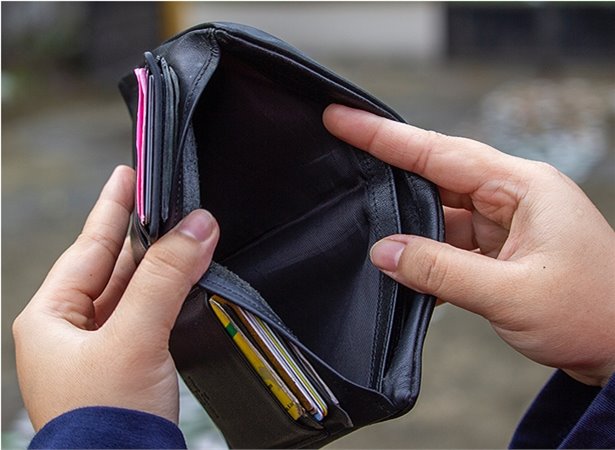New report shows the UK isn’t ready to become a cashless society
22 April 2022

A new report from the RSA (The Royal Society for Arts, Manufactures and Commerce), The Cash Census report, has proved that the pandemic has not accelerated the nation’s move towards a cashless society, reinforcing the argument that cash still has a vital place in society for so many people, and backing up Volumatic’s findings in its Cash after Covid white paper, published in late 2021.
Digital payments seem to be more desirable in both the eyes of businesses and consumers over the last couple of years, and even now, with cash payments increasing again, especially with the rise in the cost of living meaning more people are now relying on cash to help them budget.
A survey taken at Volumatic’s Cash 2030 conference in February 2022 also revealed that only 38% of retailers are actively promoting cash payments, as opposed to 81% promoting card payments, and 56% still believe that cash is a Covid-19 hygiene issue.
But, as Volumatic’s white paper showed, despite cash usage taking a hit during the pandemic, millions of people across the UK are still reliant on cash and even those that are not reliant still want the flexibility of choice when making payments, with most people choosing to use a combination of both digital and cash payments. While digital payments are an important part of modern society, they certainly should not be eradicating cash payments completely.
The Cash Census report of 2022 has also warned that the sudden acceleration towards digital has – and will continue to – put the UK’s cash system under extreme pressure and have warned that ‘without a managed transition, millions of the most vulnerable people would not be able to cope, and many more would struggle.’
James Harris, Volumatic Managing Director said of The Cash Census report: “The most important and thought-provoking findings of The Cash Census report is the impact and severe consequences of us becoming a cashless society."
“Although more people are using online payments and banking, there is a section of society that would feel left behind if a cashless society became more prevalent."
“It is clear from this report that a cashless society would compromise millions of people in their ability to manage their finances. Cash remains an essential tool to connect with their community and should therefore be protected at all costs."
“Rural communities and vulnerable citizens could become unable to access cash and it could lead to increased isolation for a section of society. Finally, a cashless society could lead to mistrust in the system due to concerns over fraud, cybercrime and technology system failures.”
He added: “This is a key document in outlining the reality of what a cashless society would mean for everyone. As industry experts ourselves, Volumatic is committed to supporting cash usage and helping our customers and partners reach the necessary goals to achieve this."
“The Cash Census report is an important reminder to us all that the UK is a long way off being stable enough to support a cashless society. As well as these key findings it also urges the Government and the finance industry to change their existing policies by supporting and educating people who want to make digital payments, keeping our cash infrastructure viable and maintaining cash acceptance across the UK,” Harris concluded.
This echoes the findings made during Volumatic’s recent Cash 2030 conference, where a panel of industry experts including The Bank of England and Enryo made a commitment to support cash over the next decade and promised that new Government policies and regulations were being finalised in order to support both businesses and consumers continued use of cash.
About The Cash Census report
Read the report here: https://www.thersa.org/reports/the-cash-census
Based on independent research, surveys, focus groups and expert interviews, The Cash Census report identified five different segments that people in the UK fall into regarding their use and attitude towards cash:
Cash Dependents
An older segment of those who reply on cash for budgeting and make regular withdrawals. This segment has the highest dependency on cash. Accounts for 18% of the UK adult population.
Cash Keepers
The youngest segment who like the security of having cash and are likely to withdraw cash regularly and keep cash at home. They use digital payments but find it easier to use cash to keep track of their spending. Accounts for 22% of the UK adult population.
Cashless Sceptics
The oldest segment who scepticism around a cashless society runs deep. They have a strong attachment to cash and are in control of their finances. They have strong concerns around fraud with digital payments. Accounts for 23% of the UK adult population.
Cash Occasionals
A younger, tech-savvy segment that prefer the convenience of digital payments but still use cash occasionally. They have strong views about fraud and privacy with digital payments. Accounts for 17% of the UK adult population.
Cashless Converts
A segment that strongly prefers digital payments and does not see the benefits of cash – except in an emergency situation. They are comfortable with technology and hardly use cash at all. Accounts for 20% of the population.